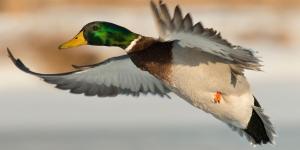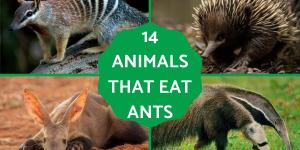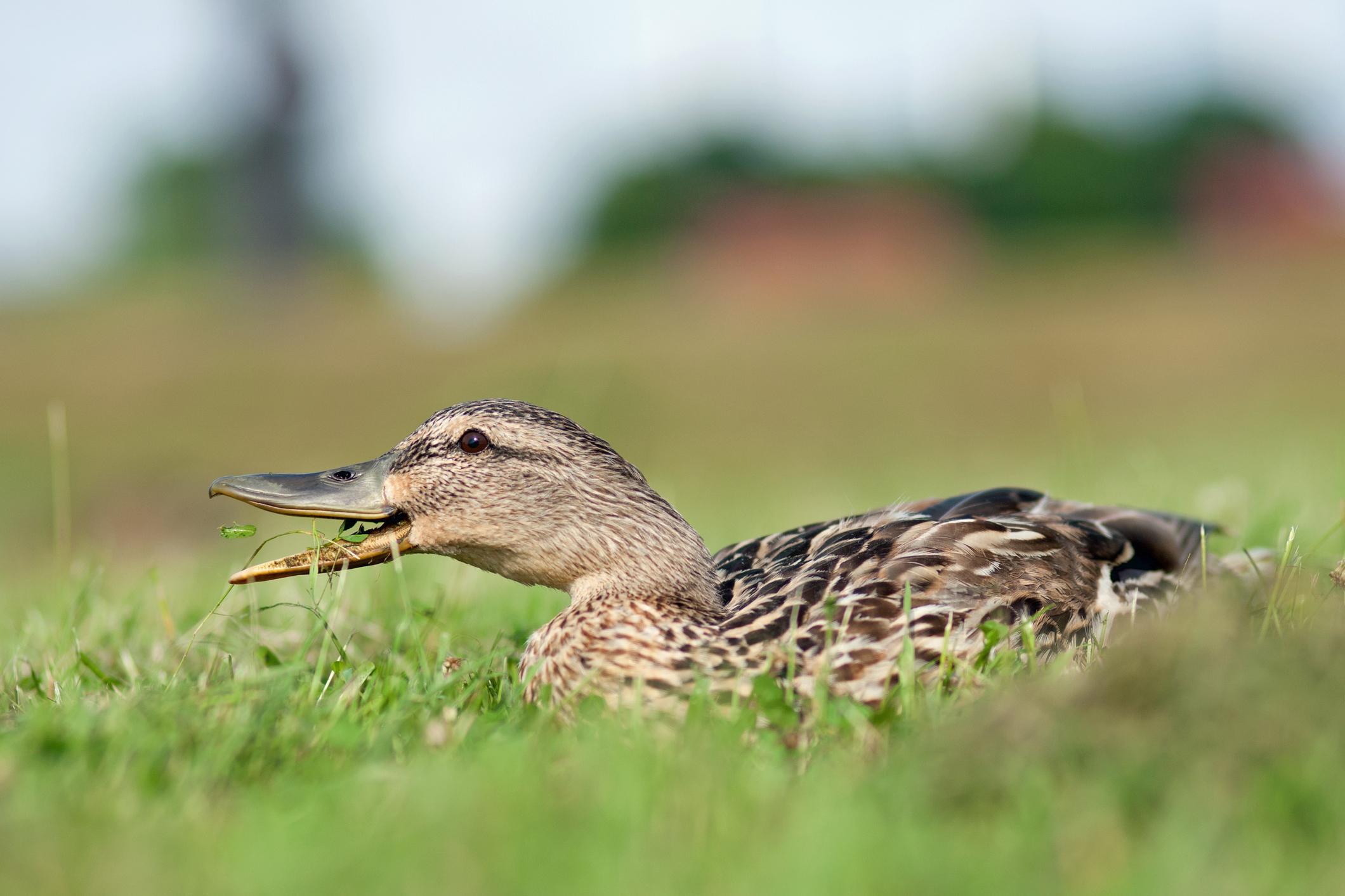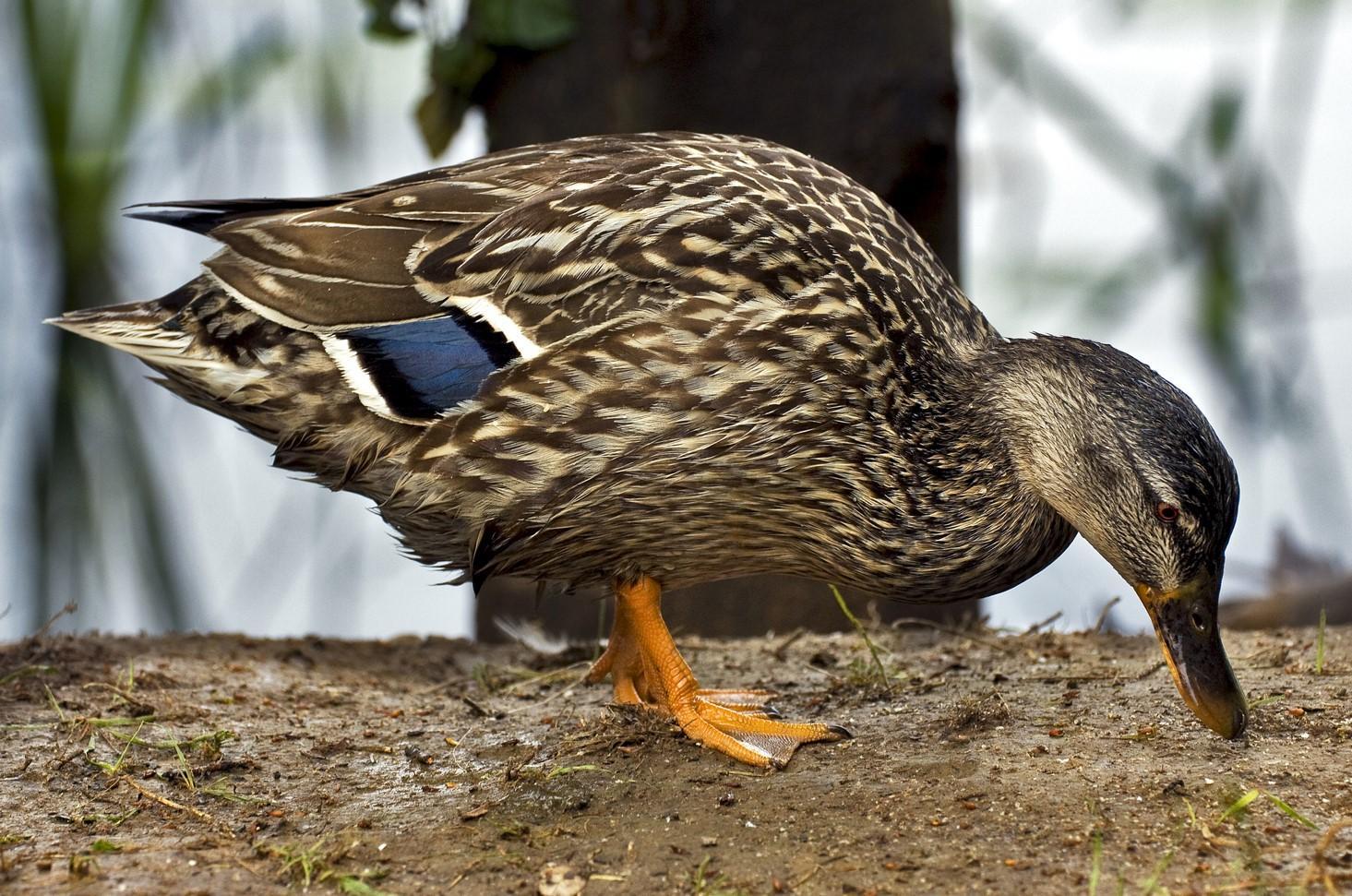What Do Ducks Eat?


Most people think of ducks as eating bread, but that's not the case! In fact, ducks have a varied diet that depends on their species and habitat. Ducks are omnivorous birds that eat a variety of foods, including insects, worms, seeds, fruits, vegetables, and even fish.
In this article by thedailyECO, we'll explore what wild ducks and domestic ducks eat, as well as what small ducks or chicks eat. We'll also discuss the importance of a healthy diet for ducks and how you can help feed them in a way that's beneficial to their health.
What do wild ducks eat?
The diet of a duck is influenced by a variety of factors, including its habitat, age, sex, reproductive status, the time of year, and the availability of food. Ducks are omnivorous birds, capable of consuming both plant and animal matter.
Their diets reflect this versatility, and they can eat a wide range of foods, including:
- Mollusks, such as clams, snails, and mussels
- Larvae, such as mosquito larvae
- Worms
- Insects
- Small amphibians and fish
- Seeds
- Aquatic plants
The specific foods that a duck eats will vary depending on its habitat and the availability of food. For example, ducks that live in freshwater habitats will typically eat more aquatic plants and insects, while ducks that live in saltwater habitats will typically eat more fish.
Here are some examples of different duck species and their dietary habits:
- Diving Ducks (e.g., Mergansers - Mergus spp.): diving ducks primarily consume fish. They are adept at diving underwater to catch their prey.
- Sirirí Ducks (e.g., Whistling-Ducks - Dendrocygna spp.): sirirí ducks are primarily seed-eaters. However, they also include aquatic plants, insects, and mollusks in their diet.
- Mandarin Ducks (Aix galericulata): mandarin ducks are omnivorous, with a diverse diet that includes plants, seeds, insects, and crustaceans.
- Torrent Ducks (e.g., Torrent Duck - Merganetta armata): torrent ducks primarily feed on fish. They are found in high-altitude mountainous regions and are skilled divers, navigating turbulent waters.
- Barcino Ducks (e.g., Yellow-billed Pintail - Anas flavirostris): barcino ducks are also omnivorous and consume a variety of foods, including vegetables, small invertebrates, and fish.
These examples showcase the diversity of duck species and their dietary adaptations, highlighting their ability to thrive in various ecosystems based on their nutritional needs and preferences.
What do baby ducks in the wild eat?
Baby ducks, known as ducklings, are usually quite self-sufficient when it comes to finding their own food in the wild. The parent ducks lead them to suitable foraging areas, such as ponds, lakes, or wetlands, where they can find natural foods like insects, aquatic invertebrates, small fish, and aquatic plants.
The parent ducks provide protection and guidance rather than directly feeding their young by regurgitation.
Discover the amazing variety of bird beaks in our other article

What to feed domestic ducks
As mentioned before, ducks are omnivorous animals that require a wide variety of foods to maintain optimal health. In the case of domestic ducks, we must make sure their diet includes a balance of carbohydrates, proteins, fats, vitamins, and minerals. A balanced diet will help keep your ducks healthy and happy.
Here are some of the foods that domestic ducks can eat:
- Cereals and legumes: corn, wheat, barley, millet, and oats are all good sources of carbohydrates and proteins. Legumes, such as beans and peas, are also a good source of protein and fiber.
- Vegetables: fresh vegetables are a valuable source of vitamins and minerals. Ducks can enjoy a variety of vegetables, including carrots, broccoli, spinach, and lettuce.
- Fruits: fruits are a good source of natural sugars and vitamins. Ducks can enjoy a variety of fruits, such as apples, pears, grapes, peaches, and bananas.
- Foods of animal origin: ducks benefit from animal-based foods, such as fish, crustaceans, mealworms, crickets, worms, snails, and slugs. These foods are a good source of protein and other essential nutrients.
- Eggshell: crushed eggshell is a good source of calcium and other minerals. It can be added to the duck's diet to help ensure they are getting enough of these nutrients.
- Commercial duck feed: commercial duck feed is available and is specially formulated to meet the nutritional needs of domestic ducks. However, it is important to choose a feed that is appropriate for the age and breed of your ducks.
Here are some additional tips for feeding domestic ducks:
- Provide fresh, clean water at all times.
- Store food in a cool, dry place.
- Rotate the types of food you offer your ducks to avoid boredom and nutritional deficiencies.
- Do not overfeed your ducks.
- Monitor your ducks' weight and body condition to make sure they are healthy.
By following these tips, you can help ensure that your domestic ducks have a healthy and balanced diet.
What to feed baby ducks?
Ducklings primarily eat specially formulated duckling starter feed, which provides essential nutrients for their growth. They also require constant access to clean, fresh water. As they grow, you can introduce crushed grains, small insects, and tender plant shoots into their diet. Occasional treats like hard-boiled eggs can provide extra protein.
It's important to monitor their growth and adjust their diet as they mature, gradually transitioning them to an adult duck diet.
Discover the amazing variety of ways that birds are classified in our other article.
Should you throw bread to ducks?
When it comes to ducks and bread, there's a prevailing myth that needs debunking. While many of us have enjoyed feeding ducks in ponds with pieces of bread, the truth is quite different. Bread is not a suitable food for ducks.
It's loaded with carbohydrates, and when ducks consume it regularly, it can lead to issues like "angel wings," a condition where wing feathers grow abnormally, hindering their ability to fly.
Ducks, whether wild or domestic, require a balanced diet rich in proteins, vitamins, and minerals. Bread falls short in meeting these nutritional needs. Instead of bread, consider providing duck pellets or grains specifically designed for waterfowl. These alternatives offer the nutrients ducks require without causing health problems.
Feeding ducks is a wonderful pastime, but let's make sure we're offering the right foods. By understanding their dietary needs and respecting their natural behaviors, we can help ducks lead healthier, happier lives.
If you love birds, make sure to read our other article on the stages of bird reproduction. Learn how birds go from eggs to chicks and the different stages involved in their reproduction process.
If you want to read similar articles to What Do Ducks Eat?, we recommend you visit our Facts about animals category.
- EBird. Available at: https://ebird.org/explore
- Santisteban Capurro, ME (2017). "Effect of the use of Lysophospholipids on weight gain in the fattening stage of Muscovy ducks" ( Cairina moschata domestica L. )






